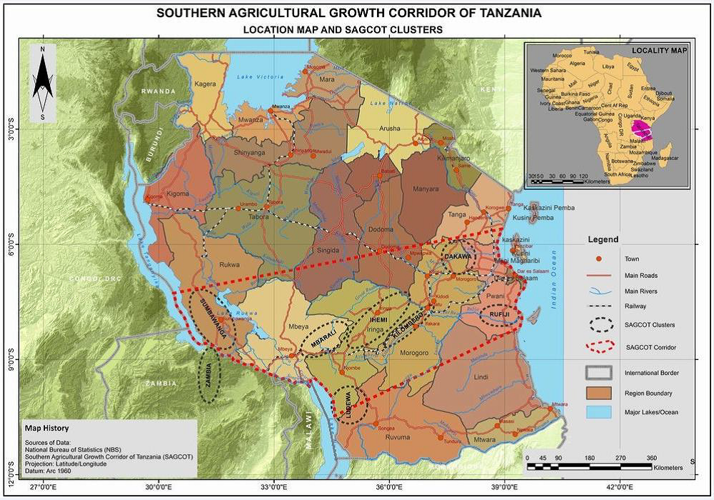The implementation of the green economy in Tanzania is currently re-arranging space in significant ways. The Southern Agricultural Growth Corridor of Tanzania (SAGCOT) has been presented by the government as well as investors and aid donors as a model for the green economy in Africa combining investments in large-scale farming with environmental conservation. The Kilombero valley is centrally situated within SAGCOT and has become a national hotspot of land-use conflicts. The valley is dominated by an expanding sector of agricultural capital investments combined with a substantial increase in areas under environmental conservation. While some smallholder farmers are dispossessed through these expansions, others are contracted as outgrowers. Pastoralists are, however, only in the way, and are also thought to cause widespread environmental degradation. This is a long-held view, which also plays a key role in the implementation of SAGCOT. It has led to a series of pastoral evictions in the country. In 2012, ‘Operation Save Kilombero’ was implemented consisting of violent evictions of all pastoralists from the valley. This eviction had been planned to conserve the wetland ecosystem that was seen by the government and aid donors to be threatened by pastoral overstocking. The arrival of the green economy in Kilombero re-enforced the perceived need to clear the valley of livestock and pastoralists to conserve the environment and make space for investments in agriculture. The pastoral eviction in Kilombero in 2012 was also only one in a series; every eviction leading to the spill-over of pastoralists to other areas creating new farmer-herder conflicts as well as conservation conflicts. While land-use conflicts in Africa are commonly thought to be caused by natural resource scarcity and environmental degradation mainly resulting from population growth, we demonstrate how degradation narratives may themselves be a key driver of conflicts, in this case to legitimize and pave the way for agricultural investments and environ-mental conservation under a ‘green economy’.
Bergius, Mikael; Tor A. Benjaminsen; Faustin P. Maganga & Halvard Buhaug (2020) Green economy, degradation narratives, and land-use conflicts in Tanzania, World Development 129: 104850.










